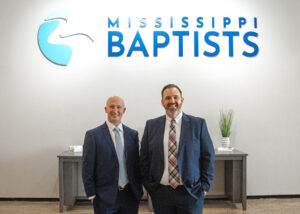By William H. Perkins Jr.
Editor
The U.S. Supreme Court has set Dec. 1 as the hearing date for a Mississippi case that both pro-life and pro-abortion groups have described as critical to the future of abortion on demand across the nation.
The case, Dobbs v. Jackson Women’s Health Organization, is on appeal from the U.S. Court of Appeals for the Fifth Circuit in New Orleans, which agreed with U.S. District Judge Carlton W. Reeves in Jackson that the 2018 Mississippi law limiting abortion to the first 15 weeks of pregnancy is unconstitutional.
Thomas Dobbs is the state health officer at the Mississippi Department of Health. The Jackson Women’s Health Organization, located in Jackson, is the only abortion clinic in the state.
Reeves’ ruling centered on whether pre-viability abortions can be banned by states without violating a U.S. Constitution clause under which the Supreme Court legalized abortion in 1973.
A decision by the justices in favor of the law is seen by many observers as upending Roe v. Wade, the 1973 ruling that found a constitutional right to abortion and made the procedure legal on a nationwide basis. A decision agreeing with Reeves and the Fifth Circuit appeals court would preserve the Roe v. Wade precedent of allowing abortion throughout all nine months of gestation.
Although abortion supporters have asserted that a decision in favor of the Mississippi law would be the end of abortion in the U.S., pro-life groups have pointed out the fact that any Supreme Court ruling that resulted in a reversal of Roe v. Wade would result only in returning the abortion issue to each state.

Kenny Digby, executive director-treasurer of Mississippi Baptists’ Christian Action Commission (CAC), told Baptist Press Sept. 21 that the state ban is a “well-, well-written law, and basically we are tinkled pink” the high court has scheduled oral arguments.
“We are thrilled with any legislation that means [fewer] abortions than more abortions, but man, to have this actually before the court in oral arguments, that’s a huge step in and of itself,” he said in a telephone interview.
“I think there’s been a tightrope act for a long time. …It’s like [the justices and federal appeals courts] agree legally that restrictions at the state level are viable for any number of reasons, but they haven’t been willing to actually look at the root cause of all of this, and that’s a poorly made decision [in Roe],” Digby said.
Baptist Press reported that abortion rights advocates filed more than 50 friend-of-the-court briefs Sept. 20, urging the justices to strike down the Mississippi ban. Among those submitting briefs opposing the state’s law are the American Medical Association, American Bar Association, more than 6,600 women who said they have had abortions, and 500-plus current or former professional, college, and high school athletes and coaches.
In July, Southern Baptists’ Ethics and Religious Liberty Commission and five other religious organizations also filed a friend-of-the-court brief advising the Supreme Court that their decisions in Roe and Planned Parenthood v. Casey, another important abortion case, that prohibited states from banning abortions before an unborn child is viable “is deeply flawed.”
An amicus curiae brief, which literally means “friend of the court” in Latin, can be submitted to a court by individuals or organizations that are not directly involved in a case but wish to share information with the court.
An amicus curiae brief has no legal standing, and may or not be considered by judges and justices in the process of their deliberations.








